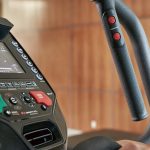By Charlie Lunan
The U.S. National Whitewater Center (USNWC) reopened its whitewater channels August 10 after implementing a new water management plan addressing concerns raised by the waterborne pathogen Naegleria fowleri.
The $34 million non-profit outdoor adventure center near Charlotte, NC is scheduled to host the inaugural Fall CycloFest presented by Interbike October 20-23 shortly after its whitewater channel closes for the season.
The USNWC closed the whitewater course June 22 after being told by local health officials that a former patron had succumbed to a form of meningitis caused by the brain-eating amoeba.
While Naegleria fowleri is found in surface waters worldwide, testing in late June found it much more prevalent in water samples taken from the whitewater channel than in the nearby Catawba River. While rare, Naegleria fowleri infections are 97 percent fatal in North America, according to the Centers for Disease Control.
The USNWC has worked with local health officials, the CDC, engineers and scientists from Clemson University to address treatment challenges posed by the turbidity of the water in its whitewater channel. The result is a modified treatment system that includes new chlorine injection and ozonation systems in addition to UV irradiation.
“Our goal, like any other water system, pool or aquarium, is to simply reduce the chances of contracting waterborne illness,” according to an August 9 statement issued by the USNWC. “It is virtually unheard of for any recreational aquatic facility, such as a pool or water park, to use three overlapping disinfection systems (chlorine, ozonation and UV) to treat their water. Certainly, no natural river is treated in this manner and we are confident that the water quality at the USNWC is far superior to any of our local rivers and streams.”
While USNWC’s whitewater operations have resumed, a report by SGB Executive in late June noted that the health scare could slow development of other major water parks.
Three weeks after the center suspended whitewater operations, county commissioners in Texas effectively blocked the opening of NLand Surf Park near Austin by suing it for failing to show it would comply with health codes for public swimming pools.
NLand has countersued and said it remains committed to opening what would be one of the largest man-made surf parks in the country. However, they must first convince health officials in Texas, who reported 34 of the 138 cases of Naegleria fowleri detected in the United States from 1962 to 2015, to permit the facility. After Florida, which also reported 34 cases during that period, the next biggest states for such cases were Arizona and California, with just eight each.
Photo courtesy U.S. National Whitewater Center
















